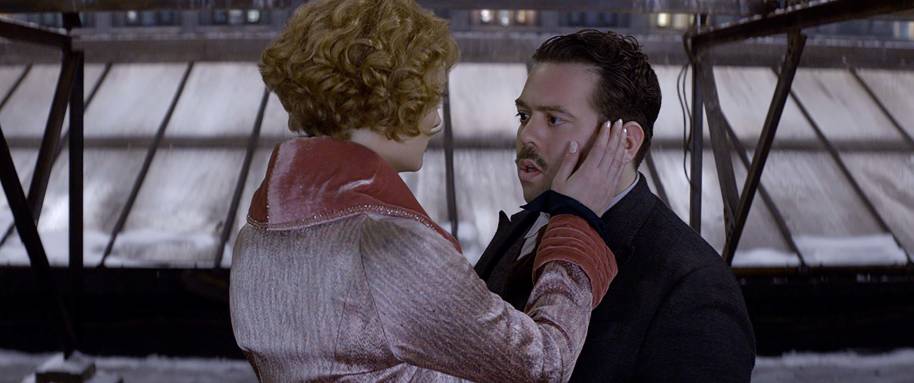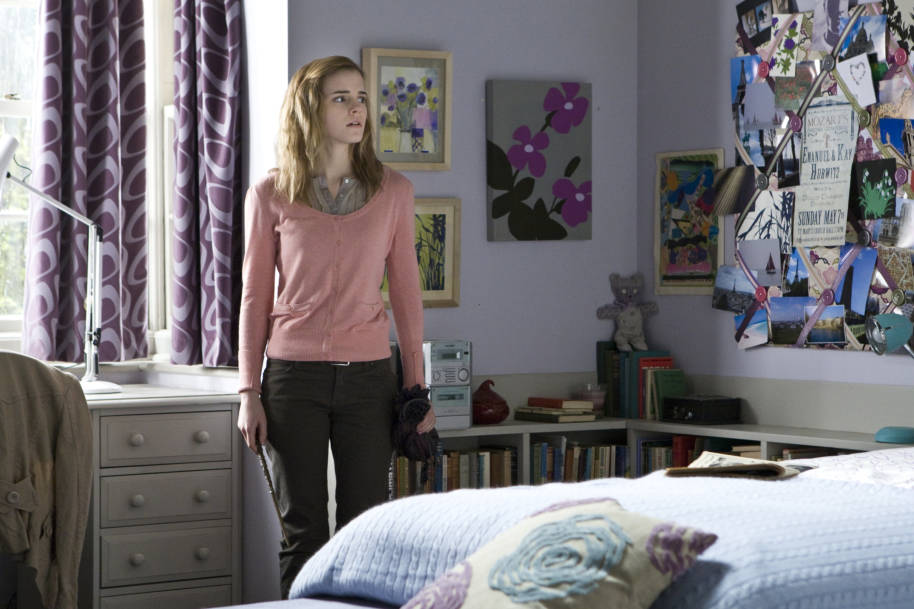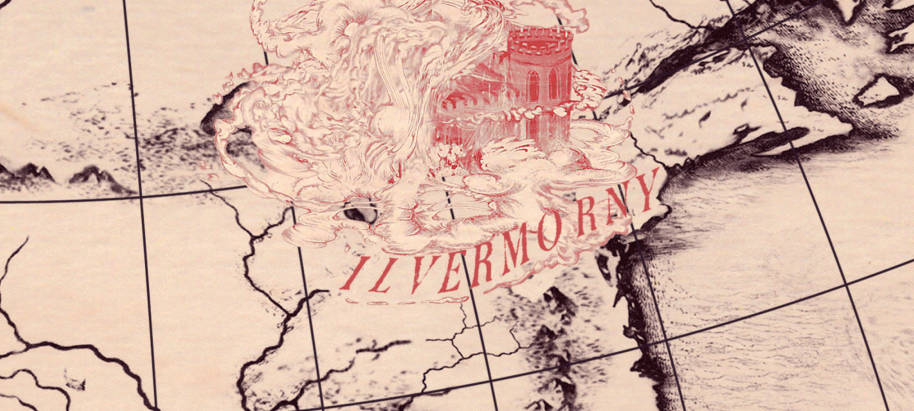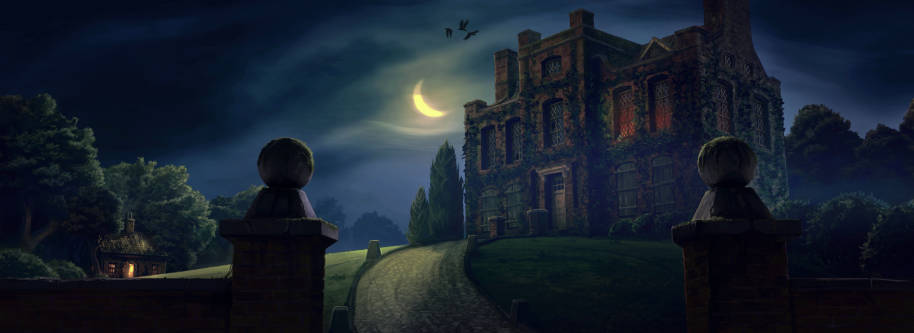
Fantastic Beasts and Where to Find Them features a rare anomaly we’re not used to seeing too much in Harry Potter. A Muggle – well, No-Maj – who’s in on the magical secret: Jacob Kowalski. And, unlike the Dursleys, he actually seemed to like it. Jacob was introduced to the wizarding world through his friendship with Newt Scamander, a wizard who mixed Jacob up in his quest to find and recapture a magical suitcase-load of escaped creatures. Despite being exposed to a whole new world of danger, it’s fair to say that he took it all rather well.
But of course, Jacob was not the first Muggle/No-Maj to be aware of the wizarding world. Here are a few others who were in the know.
The Dursleys

Let’s start with the most obvious Muggles to know of magic – and they weren’t very happy about it. The first Dursley to learn of magic, of course, was not a Dursley at all. It was Petunia Evans, before she married into the Dursley name. She was a child when sister Lily – later to be Harry Potter’s mother – revealed herself to be a witch, and her reaction was a mixture of jealousy and spite. For instance, when Lily received her letter from Hogwarts, Petunia wrote to Dumbledore to ask if she could go, too. Despite his kindly reply saying no, Petunia then grew resentful of the wizarding world, and regarded witches and wizards as freaks.
Years later – after her sister was killed, and Harry was left in her care – this resentment would carry over into her marriage with Vernon Dursley, who shared her views on all things that weren’t ‘normal’. The Dursleys, as you may know, were big fans of being normal, and tried their hardest to shut out everything they regarded as not. This translated into contempt for Harry, who was a daily reminder of the world beyond their own – one which they both feared, and didn’t understand.
Sharing this resentment was their son, Dudley, a bully who tormented his cousin until he learned of his magical abilities. What followed then was fear, eventually tempered when Dudley found out that Harry was not allowed to do magic outside of Hogwarts. Unlike his parents, however, Dudley’s attitude towards Harry would soften over the years – inspired largely by Harry saving his cousin from Dementors in Harry Potter and the Order of the Phoenix, a moment that would change Dudley profoundly.
When parting ways in Harry Potter and the Deathly Hallows, Dudley even thanked Harry and said: ‘I don’t think you’re a waste of space.’
Mr and Mrs Granger

Almost the total opposite of the Dursleys are Hermione’s Muggle parents, the Grangers. Mr and Mrs Granger – we’re never told their first names – were introduced to the wizarding world in much the same way that most Muggles are: they received a letter from Hogwarts, which revealed their daughter to be a Muggle-born witch. According to Hermione, the news came as a surprise, but her parents were supportive. In Harry Potter and the Chamber of Secrets, the pair were said to be nervous about being in Diagon Alley, but soon struck up a lasting friendship with the Weasley family. Especially Arthur Weasley, who was fascinated by their Muggle ways.
Exposing Muggles to the wizarding world is not without its dangers, however. On that same trip to Diagon Alley, the Grangers came face-to-face with its uglier side when they bumped into Lucius Malfoy, a pure-blood supremacist who insulted them to their face. This provoked a fight with Arthur, which left the Grangers ‘shaking with fright’. And of course, there is their most dangerous brush with magic: when Hermione was forced to erase their memories in Harry Potter and the Deathly Hallows, lest they were captured and tortured by Death Eaters.
James Steward

One of the most romantic Muggle/wizard relationships in history, however, was between Isolt Sayre, one of the founders of American wizarding school Ilvermorny, and her No-Maj husband James Steward.
The pair met after arriving in America, with Isolt fleeing her wicked Irish aunt, Gormlaith Gaunt, and James emigrating over with the Plymouth settlement. It was a meeting defined by tragedy, with both Isolt and James having come across a wizarding family attacked by a Hidebehind. With the parents dead, they took it upon themselves to nurse the surviving children, Chadwick and Webster, back to health.
According to J.K. Rowling, James was initially scared of magic, but each day his fear subsided. This complicated things for Isolt, who vowed that she was going to Obliviate James’s memory and send him back to Plymouth, but grew fond of having him around. ‘Finally,’ J.K. Rowling wrote, ‘it seemed simplest to admit that they were in love, marry and have done with it.’
James Steward would go on to play a huge role in the wizarding world: probably bigger than any Muggle or No-Maj has since. Along with Isolt, and their adoptive children Chadwick and Webster, James would co-found Ilvermorny – the very first American school for witches and wizards – and become its joint Headmaster, alongside Isolt. To this day, marble statues of James and his wife flank the front doors of Ilvermorny Castle, ‘one of the most democratic, least elitist of all the great wizarding schools,’ writes Rowling.
Tom Riddle Sr

If Isolt Sayre and James Steward were wizarding history’s most romantic half-blood romance, then the story of Lord Voldemort’s parents – Merope Gaunt and her Muggle husband, Tom Riddle Senior – was one of its least.
The story goes that Merope, an abused witch living in poverty, harboured a burning passion for Riddle: a Muggle who was already in love with another Muggle, and who mocked the Gaunt family. Yet that all changed suddenly; Riddle ditched his Muggle companion, and – seemingly out of nowhere – fell in love with Merope instead. Why? In Harry Potter and the Half-Blood Prince, Albus Dumbledore theorised that Merope sneaked Riddle a love potion, rendering him infatuated with her. Merope soon fell pregnant with Tom Riddle Junior, but his father left before he was born.
Years later, Lord Voldemort would say that his Muggle father abandoned his mother after finding out that she was a witch. But Dumbledore had another theory: ‘I believe that Merope, who was deeply in love with her husband, could not bear to continue enslaving him by magical means. I believe that she made the choice to stop giving him the potion. Perhaps, besotted as she was, she had convinced herself that he would by now have fallen in love with her in return. Perhaps she thought he would stay for the baby’s sake. If so, she was wrong on both counts.’
In support of Dumbledore’s theory, it’s said that Tom Riddle Senior returned home talking about how he had been ‘hoodwinked’ and ‘taken in’. Whether this was him alluding to magic – indeed, it’s unclear how much he knew, or remembered – is unclear, but it’s possible that he just didn’t want to come across as insane. Regardless, he was later murdered by his own son.
The Muggle Prime Minister
Last but certainly not least is one of the most powerful Muggles of all: the British Prime Minister. As if the job wasn’t tough enough already, it’s said that on the night a Prime Minister is elected, they receive a visit from ‘the other Minister’: the Minister for Magic. It’s here that they’re informed of a world beyond their own, that witches and wizards live in secret among them, and that they have their own form of government to make sure that both worlds are kept safe from one another. According to Cornelius Fudge, the man who was Prime Minister during the events of the Harry Potter series took the news rather well; or, at least, he took it better than his predecessor, who thought the whole thing was a hoax by the opposition, and tried to throw Fudge out of a window.

When Fudge first introduced himself to the Prime Minister of the Harry Potter series (his name is unknown, as is whether or not he’s based on the real-life Prime Minister of 1990-1997, John Major), he told him, ‘Not to worry. It’s odds on you’ll never see me again. I’ll only bother you if there’s something really serious going on our end, something that’s likely to affect the Muggles – the non-magical population, I should say.’
But that wasn’t the case. Over the next few years, Fudge would visit him with a variety of wizarding disasters. His first would be to report on the escape of notorious Muggle-killer ‘Serious’ Black from Azkaban (later revealed, of course, to be wrong). But years later, more reports followed: an attack at a ‘Kwidditch’ tournament, an import of three foreign dragons and a sphinx, a mass breakout at Azkaban, the return of an evil wizard whom he could not name for some reason. This slowly building horror culminated in a report of all-out war; of Fudge informing the Minister that ‘Death Eaters’ openly tortured Muggles, that ‘giants’ roamed through the countryside, that ‘Dementors’ now filled the land with a joy-destroying mist, that his own government had been infiltrated by mind-controlling magic.
The Prime Minister’s reaction to this news varied. At first, of course, he was confused; he barely knew anything about wizards, after all, never mind the fact that some of them posed such a threat to the nation. As he began to understand more about the wizarding world, however, this confusion soon evolved into fear, and outrage. Perhaps the best example of this was his closing conversation with Fudge, who had to grimly report the ascent of Voldemort and his followers. Confused and irritated, the Prime Minister argued that, as wizards, surely they can ‘sort out – well – anything!’
Fudge, smiling, kindly replied, ‘The trouble is, the other side can do magic too, Prime Minister.’
Harry Potter and the Half-Blood Prince

